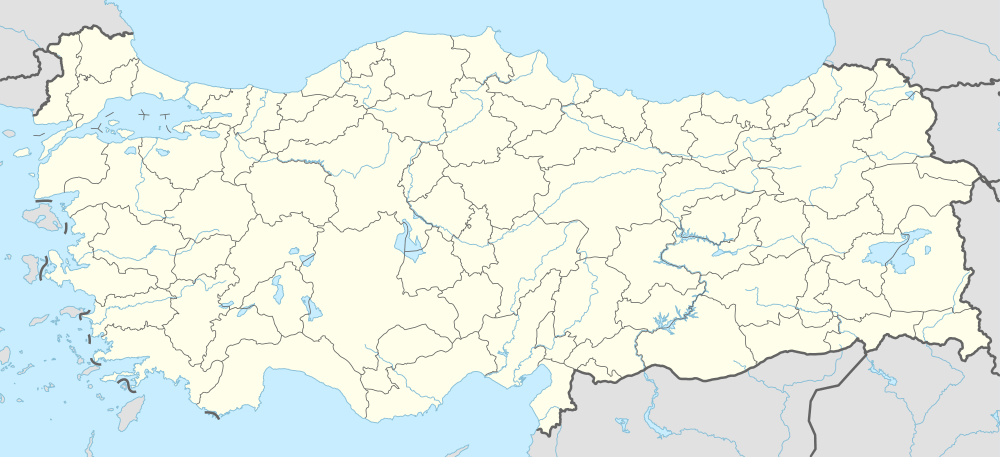Umut Bridge
| Umut Bridge Umut Köprüsü Ümid Körpüsü | |
|---|---|
| Coordinates | 39°39′19″N 44°48′12″E / 39.65528°N 44.80333°ECoordinates: 39°39′19″N 44°48′12″E / 39.65528°N 44.80333°E |
| Carries |
2 lanes of |
| Crosses | Aras river |
| Locale | Dilucu, Iğdır, Turkey and Sederek, Nakhchivan |
| Official name |
Turkish: Umut Köprüsü Azerbaijani: Ümid Körpüsü |
| Maintained by | General Directorate of Highways |
| Preceded by | Boraltan Bridge |
| Characteristics | |
| Total length | 286 m (938 ft) |
| History | |
| Construction start | 1991 |
| Opened | 22 May 1992 |
| Statistics | |
| Daily traffic | 2,560[1] |
 Umut Bridge Location of the bridge. | |
Umut Bridge (Turkish: Umut Köprüsü, Azerbaijani: Ümid Körpüsü, English: Hope Bridge), historically known as the Boraltan Bridge, is a 286-metre-long (938 ft) deck-arch bridge crossing the Aras river on the Azerbaijan–Turkey border. The bridge was constructed between 1991 and 1992 and formally opened on 25 May 1992, along with the Dilucu customs checkpoint.
The bridge is historically known for an incident in 1945 between the Soviet Union and Turkey, known as the Boraltan Bridge massacre (Turkish: Boraltan Köprüsü faciası). The incident saw the return of 195 Soviet soldiers, convicted of fighting for Germany during World War II, back into the Soviet Union by the Turkish government. Due to rising tensions between the USSR and Turkey, the convicted soldiers were handed over in order to prevent any further escalation of tensions. Shortly after the soldiers crossed the border, they were summarily executed under charges of treason.[2]
References
- ↑ SINIR TİCARETİ VE SINIR KAPILARI: Sosyo-Ekonomik Bir Analiz Sorunlar ve Çözüm Önerileri (PDF) (in Turkish). 12 May 2013. ISBN 978-605-63661-0-9.
- ↑ Boraltan Köprüsü Olayi (In Turkish)